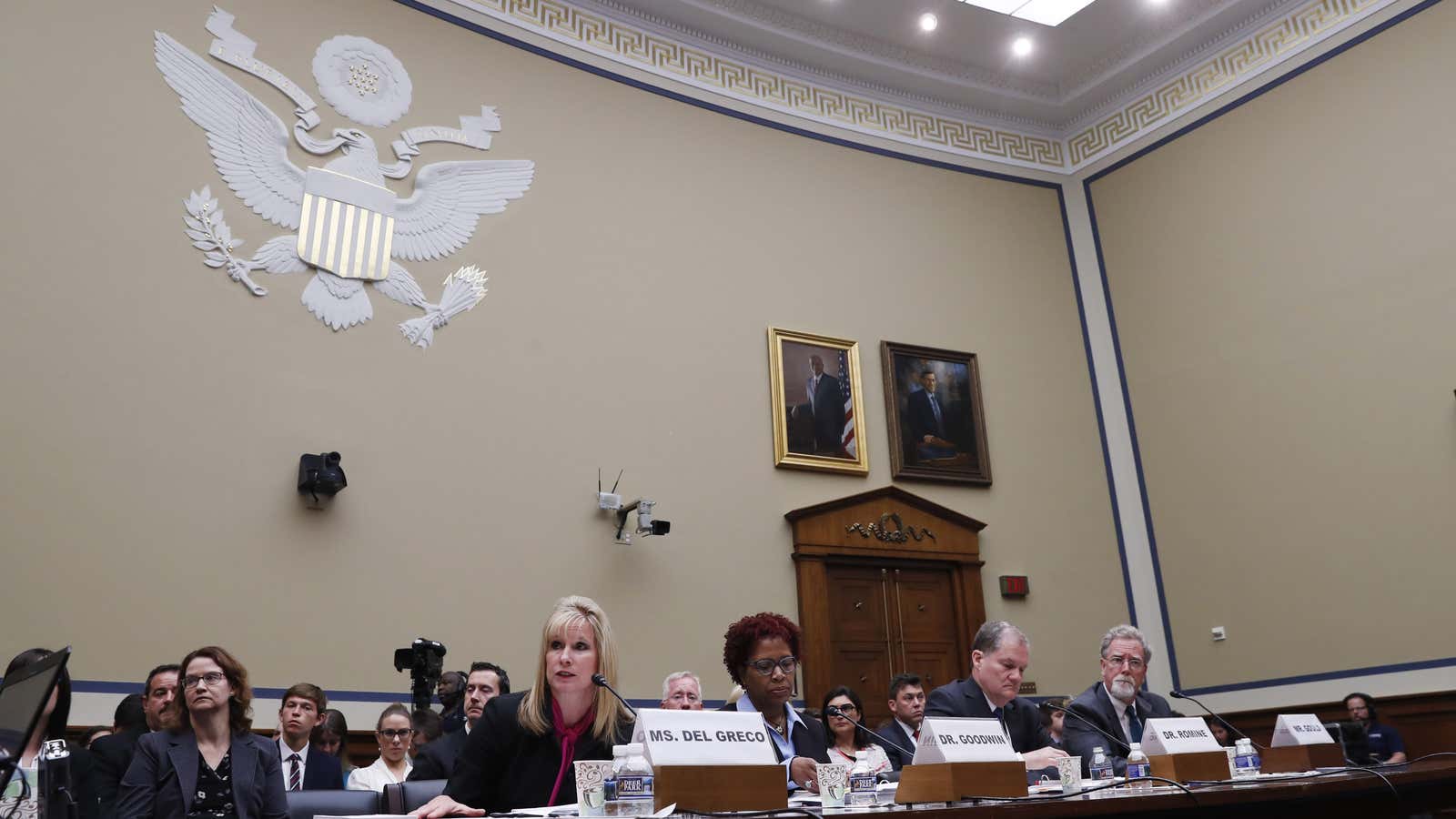Representatives from US law enforcement agencies appeared before a House committee June 4 to defend their use of facial recognition technology in investigations.
In a follow-up to a May congressional hearing in which Democrats and Republicans alike criticized the technology’s encroachment on privacy and civil liberties, law enforcement officials made clear to the House oversight committee that they do not share Congress’s reservations about facial recognition—and, in some cases, have very different definitions of “oversight” than the oversight committee does.
In addition to testimony from FBI and the Transportation Security Administration representatives, the committee heard from Gretta Goodwin, director of homeland security at the US Government Accountability Office (GAO).
Goodwin submitted a GAO report (pdf) that found the Department of Justice (DOJ) had taken little action on recommendations the congressional watchdog made back in 2016 to improve the accuracy and privacy protection of the FBI’s facial recognition tool.
Specifically, the GAO noted that the department hadn’t tested the technology on smaller sample sizes, nor did it measure how often the system produced false positives—innocent people erroneously identified as suspects.
In response, the report said, the DOJ countered that under its definition, the facial recognition tool didn’t produce “positive identification” of suspects, but only “likely candidates” for investigative leads. As a result, it was not possible for the system to produce “false positives”—or necessary for the FBI to measure them.
“We continue to stand by our recommendation,” Goodwin later told Quartz. “During the June 4th hearing, the FBI presented new information and stated that it has completed additional testing on its system, and we look forward to reviewing these results…Until then, we continue to believe that our recommended action is needed and would allow the FBI to have more reasonable assurance that [facial recognition] is providing an investigative lead service that enhances, rather than hinders or overly burdens, criminal investigation work.”
